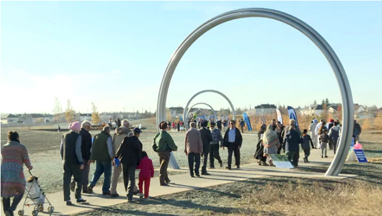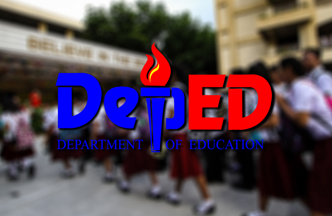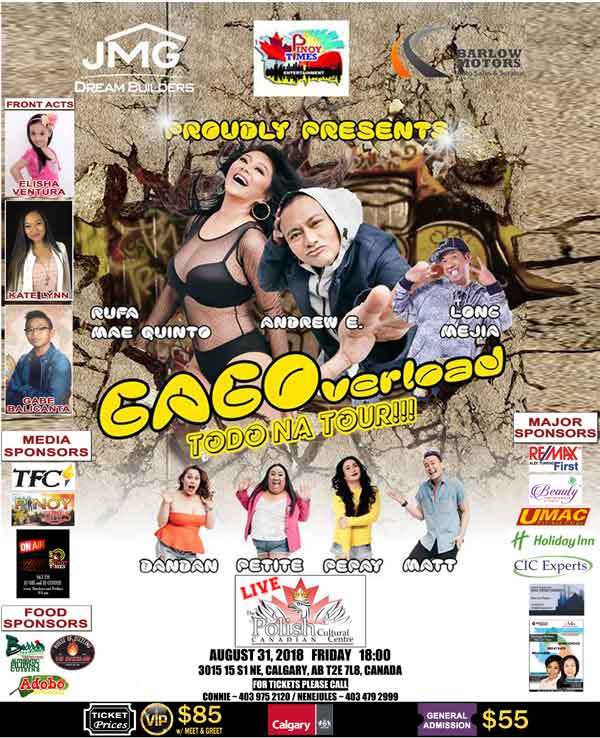- News Front Page
- Uncategorized
- Headline News
- Filipino Calgarian
- Business
- Pinoy Stories
- Community News
- Publisher's Note
- The Main Ingredient
- Views and Opinions
- Maikling Kwento
- Alberta News
- OFW – Month
- Travel News
- Health and Lifestyle
- Pinoy Toons
- Pinoy Spirit
- Entertainment
- The Philippine Lawyer
- Horoscope
- Greetings
- About Us
- Greetings From the Prime Minister
- Greetings from the President of the Philippines
- Greetings from the Premier of Alberta
- Greetings from the Mayor of Calgary
- Advertise With Us
- Disclaimer
- Subscription
Publisher's Note
- Publisher’s Note
 The year just flew by, it ’s barely 45 days and we’re into 2019. It is amazing that with the change of season, that’s how fast we can feel that the year is almost over. We started getting snow here and there and yet we’re still in the fall season.
Mid-October to early November was a [...]
The year just flew by, it ’s barely 45 days and we’re into 2019. It is amazing that with the change of season, that’s how fast we can feel that the year is almost over. We started getting snow here and there and yet we’re still in the fall season.
Mid-October to early November was a [...]
Visitors to Pinoytimes
Page added on November 24, 2018
Canadian Immigration Policy and Filipino-Canadians: Political Complexity, Multiple Objectives, and Rationality Beyond Community Self-Interest
By: Dennis D. Paglinawan
Canadians will be going to the polls in 2019, and immigration will no doubt be an elections issue. Filipino-Canadians must consider their vote and support for immigration policy beyond their self-interest as a community. The assumption here is that the community will behave like voting bloc – a collective if you will. This is an uncertain leap to make but not an impossible one.
To Filipino-Canadian voters, immigration policy could be an election issue simply because they wish, or the community as a whole wishes, policy to be more liberal or open, so more immigrants may enter Canada. It is any person’s right to exercise the right to vote in this way, on one issue (ie. immigration) or even on one perspective of an issue (ie. admit more immigrants from the Philippines), but viewing a public policy in this way is far too simplistic and uniformed of an approach, especially for an election issue, much more when it comes to immigration. Immigration is a public policy area wherein complete rationality is compromised because it is inherently politically complex, requiring voters to have a deeper understanding and greater deliberation as decision-makers.
Remembering the basic purpose of any immigration policy is important – the purpose being to allow some people into a country and to keep others out. This is tied the fact that a country can allow large numbers in or allow nobody in, but it cannot allow entry to everybody. Whether on the basis of a country’s limited space, or its incapacity to provide safety, or on its unwillingness to accept undesirable persons such as criminals, a country will discriminate on several grounds from time to time in order to determine to whom it will grant entry. Notwithstanding this basic premise, when a country makes this decision, the politically complex nature of immigration becomes apparent. This is because a country’s peoples will have a multitude of varying reasons or interests behind their views of any immigration policy; and whilst some may reflect similar objectives in immigration, many of these interests will differ ultimately resulting in competing objectives in immigration management. This leaves the government – no matter which party is in power – with the task of balancing these objectives, a task requiring adjusting priorities, managing conflicts and implementing an immigration policy with objectives that best reflect the most pressing priorities at that particular time – leaving rationality less-than perfect and subjective to measurement. In the end, a country’s government adjusts immigration policy periodically – effecting a state of constant policy flux at times wherein the government juggles its immigration policy objectives, with periods of relative stability, ultimately determining the numbers and types of people allowed through its borders.
Despite the complexity, voters can better understand immigration policy by breaking it down by objectives. There are three broad objectives in immigration that a government must achieve when balancing competing interests: national security, economic growth, and humanitarianism.
National Security
National security protocols in the administration of immigration policy in Canada reflect the purpose of any country’s immigration policy – to keep certain people out. Criminals and terrorist come to mind when considering who would constitute a security threat and hence best to keep out of Canada. Calgary’s Filipino migrants would have been subjected to security screening, including criminal record reviews. The presence of terrorist groups in the Philippines, such as Abu-Saef, would mean Filipinos aspiring to immigrate to Canada would not have been exempt from screening in this regard, whether they applied to immigrate directly from the Philippines or from a third country where they had lived and worked.
Economic Growth
When Canada liberalized its immigration policy, beginning more progressively throughout the 20th Century, there were economic reasons behind the policy changes by successive Canadian Governments. The call by the business community for skilled and unskilled labour, and for access to foreign markets through trade agreements, were drivers behind immigration policy aimed at economic growth. This objective became more obvious when policy expanded to include a category for entrepreneurs and investors in 1976. The drive towards profits and economic growth forced business interest to support more liberal immigration for a more open Canadian market, which helped to deteriorate racial criteria in immigration. Filipinos have entered Canada to meet skilled and unskilled labour demands since.
Humanitarianism
Humanitarianism as an objective can include implementing a refugee system, or a category of entry on compassionate circumstances to help the ill and the temporarily displaced persons under the United Nations Convention Relating to the Status of Refugees (UNHCR), or a category of entry to help families stay together, as well as a category allowing people to sponsor their family members related by varying degrees. Throughout Canada’s history of immigration policy development, the liberalization of policy and legislation over time under various Conservative and Liberal Governments facilitated the growth of the Filipino community, particularly due to the family sponsorship and reunification provisions in policy.
For any government, establishing a balance amongst these 3 immigration policy objectives is difficult. How restrictive must policy be to keep Canadians safe? How open must admission to Canada be in order to facilitate economic growth without flooding the labour market? If Canada is obligated to admit asylum seekers, – some without proper documentation – how many should be admitted so that Canada is respected internationally but without compromising national security or the labour market? What is a rational and balanced immigration policy in this regard? Sometimes accepting large numbers of asylum seekers on humanitarian grounds can compromise national security objectives; but refusing entry on heavily administered security provisions can compromise stifle economic growth; and focusing only accepting immigrants for business and economic growth can make Canada appear to be lacking compassion towards legitimate refugees.
When Filipinos in Canada go to the federal elections polls in 2019, they will exercise their right as a community of Canadians, as only citizens can vote in Canada, and immigration policy will be an issue for many if not most. Still, Filipino-Canadians will have their own perceptions of what is balanced and rational when it comes to immigration policy. However, as Canadians, this community needs to exercise its votes beyond self-interests if it truly possesses sincere care for the future of its adopted country, Canada; but if they vote solely on the issue of immigration policy then they need to deliberate more extensively with regard to the complexities of immigration policy objectives. They need to think about how any proposed immigration policy should be in terms of balanced objectives, and how the policy will, not only benefit the Filipino community in terms of numbers but also, benefit the country as a whole so that it will graze their future generations successfully. Just as they might have thought about immigration when they were living as citizens in the Philippines and how it affected that country’s society and economy there, Filipino-Canadians need to protect Canada as their new home. Their futures and the future of the community as a whole depend on the government to make the best immigration policy choices. Voters in the Filipino-Canadian community must resist the knee-jerk reaction to support the most apparently liberal or open immigration policy. They should understand that it is okay to say ’no’ to a policy they believe to be too liberal and too potentially dangerous for Canada in terms of national security or economic growth, and that it is their right to express the view that a liberal approach to immigration must have some limits and accountability, even if the objective is honourable and aimed at humanitarianism.
It is possible that Filipino-Canadians will not be able to support any immigration policy proposal by any political party in 2019, but the decision not to support any policy would be more informed by considering which policy best reflects rationality and balance, with regard to national security, economic growth, and humanitarianism. It may be the right of members of the Filipino-Canadian community to vote, but this right comes with an obligation to make an informed decision when voting, and to think about which immigration policy proposal reflects the best rational balance of national security, economic growth and humanitarianism for Canada.
By thinking about immigration policy and how to vote on the issue, the community and as Canadian citizens would demonstrate deep concern for Canada’s well being, and not just for the well-being of Filipino-Canadians. They would be reflecting thoughtful deliberation on immigration policy they believe to be a rational one that will ultimately shape a Canada that is safe, economically prosperous and humanitarian.
Dennis D. Paglinawan is a Calgarian who has worked and studied internationally. He holds a PhD in Political Studies from the University of Auckland, New Zealand.
RELATED STORIES
LATEST HEADLINES
- MOTION RECOGNIZING JUNE AS FILIPINO HERITAGE MONTH PASSES CANADA’S PARLIAMENT
- Manmeet Singh Bhullar Park officially opens in Calgary
- CORONATION OF MS. BARANGAY 2018 OF THE GOLDEN GENERATIONS SENIORS CLUB OF CALGARY
- GLOBALFEST 2018
- ISKWELAHANG PILIPINO (IP) RONDALLA OF BOSTON WINS THE HEARTS OF CALGARIANS
COMMUNITY NEWS
 Canadian Immigration Policy and Filipino-Canadians: Political Complexity, Multiple Objectives, and Rationality Beyond Community Self-Interest
Canadian Immigration Policy and Filipino-Canadians: Political Complexity, Multiple Objectives, and Rationality Beyond Community Self-Interest Manmeet Singh Bhullar Park officially opens in Calgary
Manmeet Singh Bhullar Park officially opens in Calgary One year later, Citizenship Act improvements lead to more new citizens
One year later, Citizenship Act improvements lead to more new citizens On October 17, cannabis is legal in Canada. What does that mean for Calgarians?
On October 17, cannabis is legal in Canada. What does that mean for Calgarians?PINOY STORIES
 Quality education assured with SC ruling on K to 12
Quality education assured with SC ruling on K to 12- Holy Week practices in the Philippines
PINOY SPIRIT
HAVE YOUR SAY
Lorem ipsum dolor sit amet, consectetur adipiscing elit, dolor sit ipsum.PROMOTIONAL BLOCK
Lorem ipsum dolor sit amet, consectetur adipiscing elit, dolor sit ipsum.TRAVEL NEWS
PINOY TOONS
Tags
Archives

















